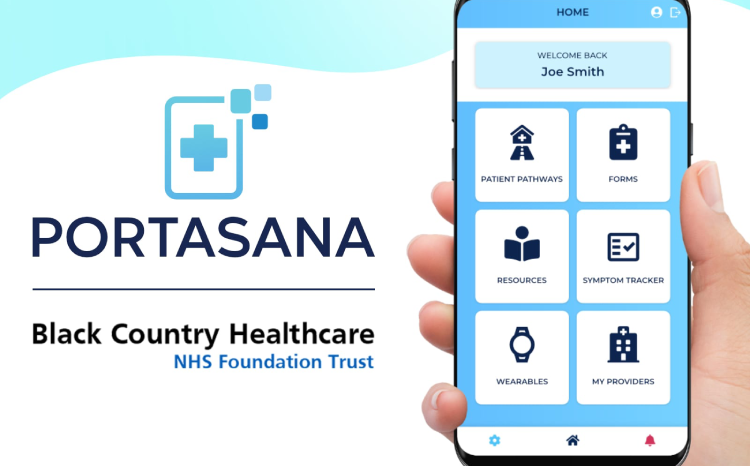Agfa targets EPR market
- 31 May 2007
 Agfa is one of the largest international health technology companies involved in the NHS IT programme. To date its involvement has been largely focused to the delivery of Picture Archiving and Communications Systems (PACS) in the North, East and East Midlands of England, but the company now has ambitions to do far more.
Agfa is one of the largest international health technology companies involved in the NHS IT programme. To date its involvement has been largely focused to the delivery of Picture Archiving and Communications Systems (PACS) in the North, East and East Midlands of England, but the company now has ambitions to do far more.
As the PACS roll-out programme reaches its peak the Belgium-based giant is signalling it also has the ambition and capabilities to deliver health IT systems outside its traditional expertise of medical imaging. In part this is helped by the recent de-merger of Agfa – Gevaert into three separate entities – one just focused on health.
Crucially, in the past 24-months two key acquisitions have also been made: GWI, one of the leading health IT providers in the German-speaking countries of Europe; and Heartlab, a specialist in cardiology software. The two deals have catapulted Agfa into the premier league of European health IT firms competing internationally
In an exclusive interview with E-Health Insider, Adrian Stevens, Agfa HealthCare’s director of healthcare for North Europe Region says that he believes his company has exceeded expectations in the roll-out of Picture Archiving and Communications Systems (PACS) in the North East, East and East Midlands regions NEEEM. He says his ambition is to now do more.
PACS programme to complete by October
From a standing start in February 2006 Agfa – together with prime contractor Accenture – it will have completed all 29 PACS trust implementations in NEEEM by October 2007.
Twenty installations have so far been completed and seven are in progress. Agfa says that in addition to the systems being installed under NPfIT it has also installed a further 46 PACS systems in the UK and Ireland.
The Agfa PACS system is being delivered alongside a separate Radiology Information System supplied by HSS. In the future it is planned that the current stand-alone PACS systems will link to a central data centre. "The implementation of PACS image sharing should be completed on time to realise the benefits of record sharing," says Stevens.
"I think that our roll-out capacity has surpassed expectations," says Stevens. He says that the success of the implementation has been a true partnership between Accenture, Agfa HealthCare, Connecting for Health and local trusts.
He adds: "PACS has historically been Agfa’s core business and we are used to this sort of deployment, both in terms of R+D fit and delivering organisational capability."
Agfa aims to do more
Stevens says that he now wants to build on Agfa’s NPfIT success: "I now want to capitalise on our success in the national programme to enhance Agfa’s offering in the clusters," he told EHI. "I’m saying we can do more now."
He said that one of the things the national programme had demonstrated was Agfa’s ability to deliver both large scale programmes and professional services such as training and project management.
Stevens confirmed that Agfa had responded to Connecting for Health’s additional systems and services procurement, and said it had the appetite and capability to deliver more to NPfIT. He said the company is also targeting opportunities in the private sector, including a recent contract win with the entire Nuffield group.
He added that countries with active opportunities include: Ireland, Wales and Ireland.
Nordic countries provide blueprint for PACS future
Asked to highlight what other countries other than England the company has delivered similarly complex projects to, Stevens points to progress in northern Europe. "Finland and some of the other Nordic countries are very advanced on what they are doing on PACS and provide a blueprint of what we can do in the future."
He says these developments include: central storage and archiving of images; image sharing; providing access to images over PDA devices; and in the longer term "total management of information in a hospital environment".
While Agfa has come from a background in digital imaging and the subsequent management of diagnostic images he says that now the company "is committed to convergence of systems so we can provide a fully interoperable and integrated hospital environment."
Agfa aims to provide full range of hospital systems
"We have to move Agfa from its traditional heritage," says Stevens. "Our goal is to be able to provide the full range of systems needed by a hospital, ranging from patient administration, cardiology, orthopaedics, and clinical information systems".
The objective, he says, is to move the company from being a recognised market leader in PACS to an IT solutions-based company that can deliver the next stage of e-health, without losing focus on existing customers. "This is a really big challenge," says Stevens.
To achieve these goals Agfa has re-organised internally to create Agfa HealthCare, it has over the past few years made "controlled acquisitions" including GWI and Heartlab and developed a "track record in delivery of large scale projects in the UK and Canada".
Launch of ORBIS EPR in UK
The purchase of GWI propelled Agfa into the forefront European health IT suppliers, providing it with the proven ORBIS electronic patient record system, with an installed base of over 800 customers in key European countries.
"ORBIS is particularly strong in the German-speaking countries of Germany, Austria, Switzerland and the Czech Republic and we have an international roll-out programme that is going very well in Belgium, Italy, France and the US," says Stevens.
The ORBIS product was officially launched in the UK in March and Agfa is now working with prospective pilot sites who want to take the product.
Stevens says that the business case for investment in ORBIS to adapt it for the UK market has been given the green light for investment. "The next stage is establishing the right organisation and capabilities," says Stevens.
Pilot sites now being sought
He says that a key challenge is to avoid the pitfalls that other suppliers have hit when launching EPR products in the UK – of signing up a couple of pilot sites but never then being able to subsequently scale up and build a bigger customer base.
"As part of our strategic plan its envisaged to go with local research and development to develop the local elements required. This is a key differentiation." He described ORBIS as a proven product, which enjoys continuing investment and has local customisation.
While Stevens declined to name possible NHS reference sites he said that work was already underway with early customers.




